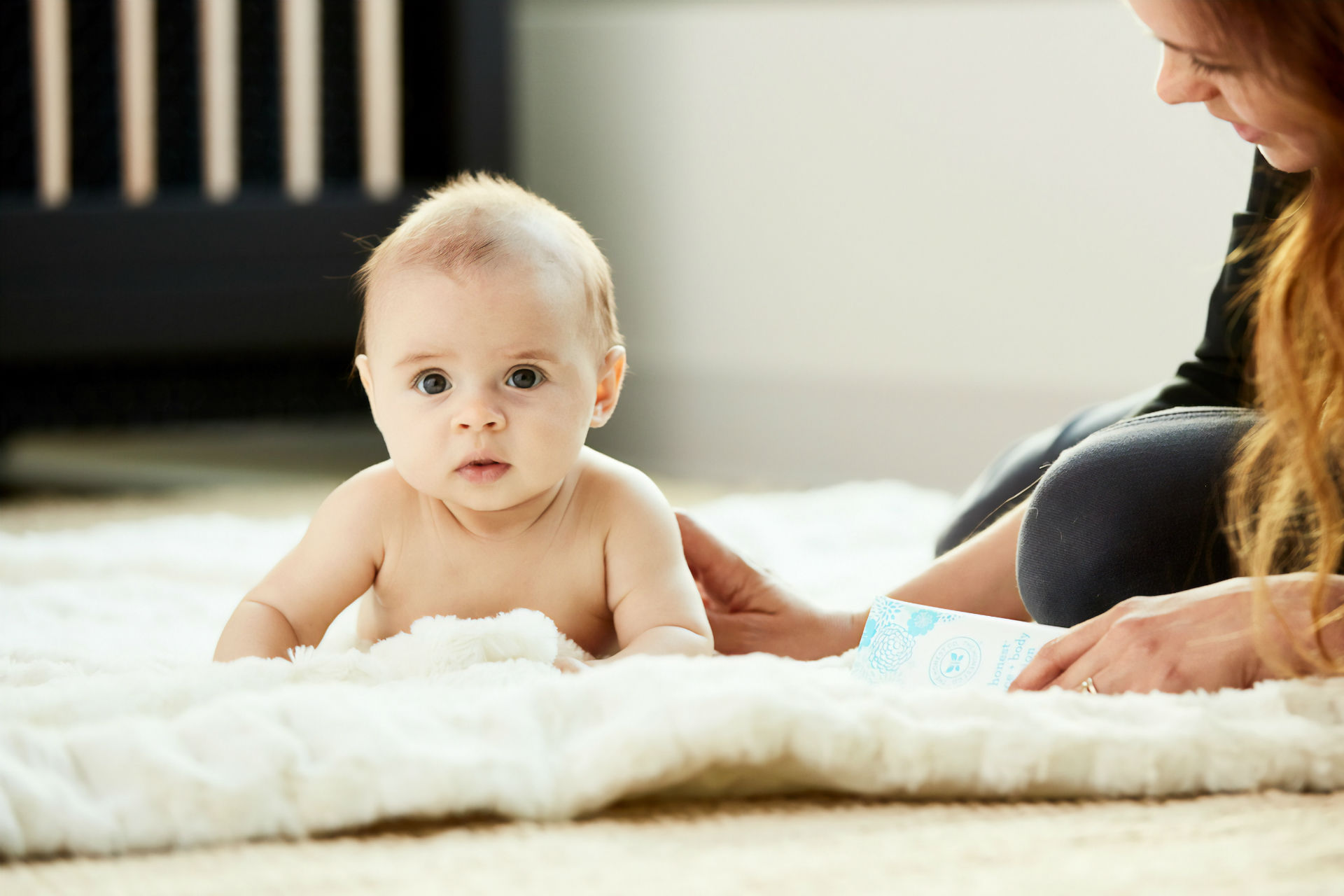Baby
3 min Read
Keep your baby active with tummy time

August 20, 2019
Baby
3 min Read

August 20, 2019

Matthew Velan is about to start working out. The four-month-old will soon be put on the floor, on his tummy, by his mother — who will supervise.
“He used to get very frustrated on the floor, but I think now that he’s a bit older, he’ll enjoy it more and we’ll do more tummy time,” says mom Jill, of her fourth son.
Guidelines issued by the Canadian Society for Exercise Physiology recommend that infants under the age of one engage in supervised physical activity several times a day, especially through floor-based play: tummy time, reaching, pushing, pulling and crawling.
So, along with the midnight feedings, hourly diaper changes, sleep deprivation and general upheaval of parenting a newborn, you now have to be conscious of your baby’s physical activity and incorporate that into your seemingly endless day as well?
If Canadian parents want to help reverse the worrying crisis of childhood obesity, then the answer is yes. It’s time to get on board with modifying behaviours — starting practically from birth.
Babies and children have more exposure than ever to sedentary time, which includes all types of exposure to screens, from TV to computers to video games and smart phones.
“The problem of childhood obesity is multifactorial. There is not one part of society that can fix it,” says Dr. Claire LeBlanc, a Montreal pediatrician and chair of the Canadian Pediatric Society Healthy Active Living and Sports Medicine Committee. “A team effort is required to turn the process around and parents of infants are an important part of that team.”
The CPS position statement, Healthy active living: Physical activity guidelines for children and adolescents, identifies many risk factors that can lead to childhood obesity. And childhood obesity can lead to a multitude of health problems.
“It’s not just about the weight,” says Dr. LeBlanc. “There is high blood pressure in kids, disruptive sleep apnea, problems with bones and joints, low self-esteem, depression, anxiety… We need to look at solutions that start well before school.”
Originally published in ParentsCanada magazine, May/June 2013.